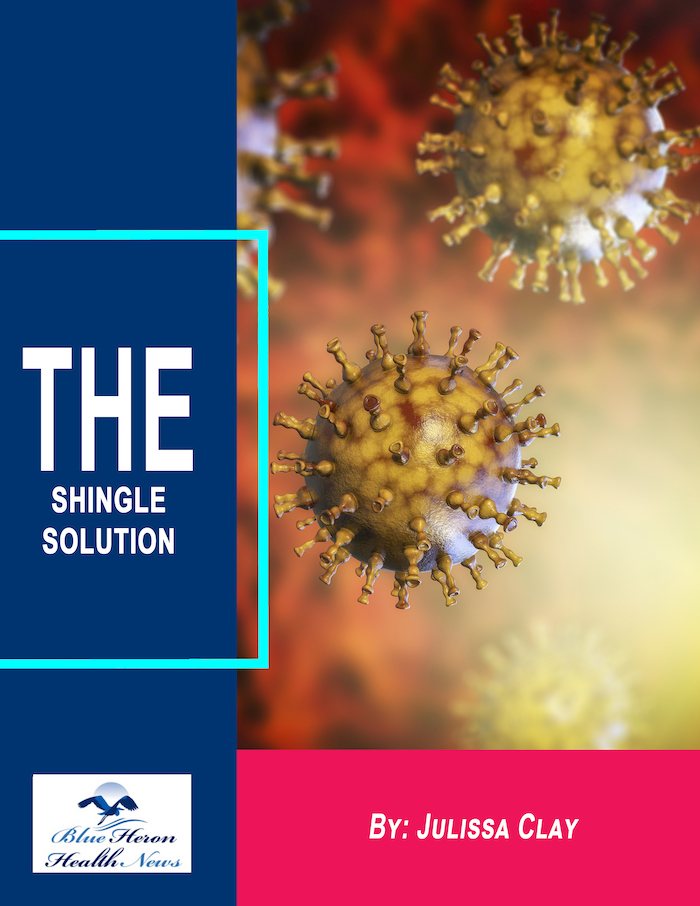
The Shingle Solution™ By Julissa Clay This eBook includes a program to treat the problem of shingle naturally. The author of this eBook, Julissa Clay, a practitioner in natural health, has killed the shingles causing virus completely to overcome the problem of PHN or Postherpetic neuralgia, one of the common complications caused by shingles. This program helps in melting PHN in a few weeks and make shingles a forgotten nightmare.
What questions should one ask their doctor about shingles treatment?
When discussing shingles treatment with your doctor, it’s important to ask comprehensive questions to fully understand your condition, treatment options, and management strategies. Here are key questions you might consider asking:
Questions About Diagnosis and General Information
- What causes shingles, and why did I develop it?
- Understanding the underlying cause and risk factors can help you manage the condition and prevent future outbreaks.
- How long will the shingles rash last, and what should I expect in terms of symptoms?
- Knowing the typical duration and progression of the disease can help you prepare for the healing process.
- Are there any signs or symptoms that indicate complications?
- Identifying symptoms of complications like postherpetic neuralgia (PHN), eye involvement, or secondary infections is crucial for timely intervention.
Questions About Treatment Options
- What are my treatment options for shingles?
- Ask about antiviral medications, pain management strategies, and any other treatments that may help alleviate symptoms.
- How do antiviral medications work, and how soon should I start taking them?
- Understanding the role of antiviral drugs, such as acyclovir, valacyclovir, or famciclovir, and the importance of early treatment can impact the effectiveness of the therapy.
- Are there specific pain management options you recommend?
- Discuss options such as over-the-counter pain relievers, prescription medications, and alternative therapies like lidocaine patches or capsaicin cream.
- Can topical treatments help with itching and discomfort?
- Inquire about the use of topical treatments like calamine lotion, antihistamine creams, or oatmeal baths to relieve itching and skin irritation.
- What are the potential side effects of the medications prescribed?
- Knowing the side effects can help you weigh the benefits and risks of the treatment and prepare for any possible reactions.
- How will we monitor the effectiveness of the treatment?
- Discuss follow-up appointments or any signs to watch for that indicate the treatment is working or if adjustments are needed.
Questions About Preventive Measures and Contagion
- Is shingles contagious, and how can I prevent spreading the virus to others?
- Understand how the virus spreads and what precautions to take to protect those around you, especially individuals who have never had chickenpox or the chickenpox vaccine.
- Should I get the shingles vaccine in the future to prevent recurrence?
- Discuss the shingles vaccine (Shingrix) and its role in preventing future episodes, including when and how to get vaccinated.
Questions About Managing Symptoms and Complications
- What can I do at home to manage symptoms and support recovery?
- Ask about home care measures, such as proper skin care, rest, hydration, and dietary recommendations.
- How should I care for the rash and blisters to prevent infection?
- Get advice on cleaning the affected area, using dressings or ointments, and when to seek medical attention for possible infections.
- What are the chances of developing postherpetic neuralgia (PHN), and how can it be managed if it occurs?
- Understanding the risk factors for PHN and the available treatment options can help in early identification and management of this complication.
- Can shingles affect other parts of my body, like my eyes or ears?
- Learn about the risks of shingles spreading to sensitive areas, such as the eyes (herpes zoster ophthalmicus) or ears (herpes zoster oticus), and the specific symptoms to watch for.
Questions About Lifestyle and Emotional Impact
- How can I manage the emotional and psychological impact of shingles?
- Discuss the potential psychological effects, such as anxiety, depression, or stress, and inquire about resources for mental health support.
- Are there any activities or lifestyle changes I should consider during recovery?
- Get recommendations on physical activity, work, and daily routines that may need to be adjusted while recovering from shingles.
Questions About Long-Term Management and Follow-Up
- What is the likelihood of shingles recurring, and how can I reduce the risk?
- Ask about long-term management strategies, including immune-boosting measures and preventive care.
- When should I schedule a follow-up appointment, and what should I expect during these visits?
- Ensure you know when to return for check-ups and what will be monitored during these visits, such as healing progress or the development of complications.
- How can I stay informed about new treatments or research related to shingles?
- Inquire about reliable sources of information and any ongoing research or clinical trials that might be relevant.
- Are there any specific dietary or lifestyle recommendations to support my recovery?
- Discuss whether any changes to your diet or lifestyle could help speed recovery or improve your overall health.
Being well-prepared with these questions can help you gain a thorough understanding of your condition and the best ways to manage it. It also facilitates effective communication with your healthcare provider, ensuring that all your concerns are addressed and that you receive comprehensive care.

The Shingle Solution™ if you are suffering from shingles then The Shingle Solution can be the best program for you to relieve your pain and itching by using a natural remedy. It describes the ways to use this program so that you can feel the difference after using it as directed. This natural remedy for shingles can also help in boosting your immune system along with repairing your damaged nerves and relieve pain and itching caused by shingles.